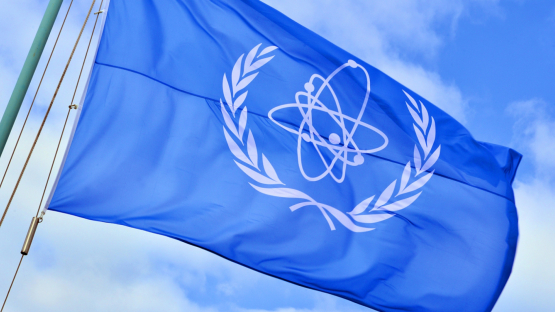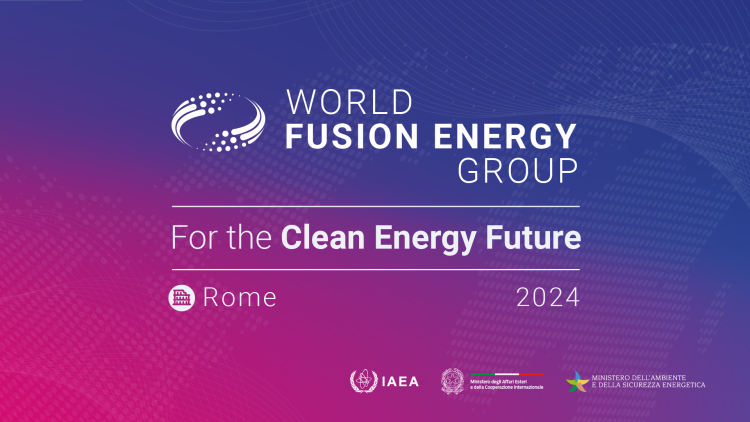IAEA calls for Iran to comply with nuclear safeguards, inspections
The board of governors for the International Atomic Energy Agency censured Iran this week for its failure to cooperate with access requests and materials needed to confirm that the Middle Eastern nation is adhering to nuclear safeguard obligations.
The proposal, put forth on Wednesday by members from France, Germany, and Britain, called on Iran to abide by a joint resolution with the IAEA from March 2023, in which it agreed to resolve issues around sites where inspectors have questions about possible undeclared nuclear activity. On the resolution, 20 members voted in favor, Russia and China opposed, 12 abstained, and one did not vote, according to the Associated Press.
Iran’s Foreign Ministry responded today with condemnation of the IAEA’s resolution, saying it is “politically motivated and unconstructive” and a “bid to politically abuse international mechanisms against independent nations.”
“The Islamic Republic of Iran is committed to continuing its technical cooperation with the [IAEA] in line with its legal and international obligations based on the Non-proliferation Treaty and the safeguards agreement,” the ministry said in a statement. “The issuance of this resolution will have no effect on [Iran’s] resolve to press ahead with its peaceful nuclear program and to implement its nuclear development plans in line with its rights under related international treaties.”
IAEA concerns: Inspectors with the agency say two sites near Tehran have traces of processed uranium, but they’ve received no “technically credible” answers for the presence of uranium particles at these undeclared locations. IAEA director general Rafael Mariano Grossi noted his serious concerns and said the agency could not confirm the correctness and completeness of Iran’s compliance without more information.
It has been four years since the IAEA called out Iran for lack of cooperation with international standards. And twice in 2022, the board of governors asked Iranian officials to fulfill their legal obligations to provide additional information and clarification.
The latest IAEA resolution calls for Iran to “reverse its withdrawal of the designations of several experienced agency inspectors, which is essential to fully allow the agency to conduct its verification activities in Iran effectively.”
From the meeting: In his opening statement to the IAEA Board of Governors on June 3, Grossi presented his latest report on verification and monitoring in Iran.
"You will note that Iran's stockpile of enriched uranium continues to increase, including that enriched up to 60 percent," he told the board. "The agency has lost continuity of knowledge in relation to the production and inventory of centrifuges, rotors and bellows, heavy water, and uranium ore concentrate. It has been more than three years since Iran stopped provisionally applying its Additional Protocol and therefore it is also over three years since the agency was able to conduct complementary access in Iran."
Grossi said there has been no progress in resolving the outstanding safeguards issues. Iran, he said, has not provided the IAEA with "technically credible explanations" for the presence of uranium particles of anthropogenic origin at the Varamin and Turquzabad sites. In addition, it had not informed the agency of the current location(s) of the nuclear material and/or contaminated equipment.
According to a March 2023 IAEA report, it is believed that Iran used the site at Varamin, about 30 miles southeast of Tehran, as a pilot project to convert uranium ore into gas from. Operations ceased in 2003 and the buildings were demolished in 2004. The IAEA further believes that some material from Varamin was taken to the site at Turquzabad, approximately 20 miles southwest of Tehran, but that alone is not sufficient to explain the presence of uranium there.
"These outstanding safeguards issues stem from Iran's obligations under its Comprehensive Safeguards Agreement and need to be resolved for the agency to be in a position to provide assurance that Iran's nuclear program is exclusively peaceful," Grossi said. "Further public statements made in Iran regarding its technical capabilities to produce nuclear weapons and possible changes to Iran's nuclear doctrine only increase my concerns about the correctness and completeness of Iran's safeguards declarations."







